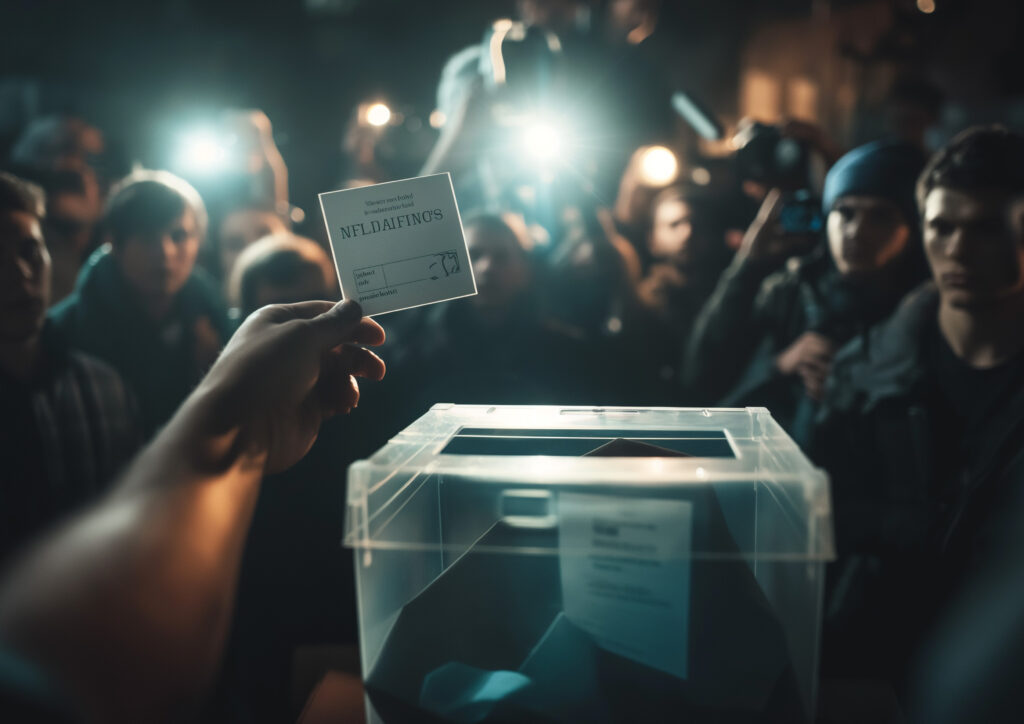By: Prabowo Subianto, excerpted from “National Transformation Strategy: Towards a Golden Indonesia 2045,” pages 223-227, fourth softcover edition.
For me, entering politics meant embracing sacrifice—of energy, time, and emotion. Yet, without engaging in politics, there would be no way for me to improve the lives of the many.
Indeed, I’m convinced that substantial improvements in the lives of our citizens cannot be achieved by mere complaints and criticism. Nor can we better our nation by simply observing from the sidelines or by reprimanding without action.
Some of you reading this book might already be involved in politics, or at least understand and care about our national politics. Some may not. To those who haven’t, I urge you to contemplate the following.
There comes a time in life when we must make difficult choices. Do we stand for truth, or do we condone falsehoods?
Do we firmly defend the integrity and independence of our nation and the values we hold dear? Or, do we succumb to monetary temptations, selling out our values, our selves, our identity, and our dignity?
Choices like these are incredibly hard.
In 1945, our leaders faced such a dilemma: to declare independence or wait to be granted it by the colonizers. Those advocating for immediate declaration risked everything, including their lives.
On the eve of November 10, 1945, the people and leaders of Surabaya were confronted with a tough decision: surrender to British demands by handing over their weapons by November 9 or face an assault by a global superpower of that era.
Imagine the blow to our national pride had the leaders and citizens of Surabaya capitulated. What if Governor Suryo, Bung Tomo, and all leaders of East Java and Surabaya had bowed to foreign demands? Where would our dignity stand today?
The major crises of our nation in 1965 also presented a stark choice: defend Pancasila or yield to an ideology alien to our nation, communism?
Similarly, during the Reform era in 1998, many of our leaders were faced with difficult choices: defend an undemocratic system or bravely champion reform and democracy?
Over the past 20 years of my political journey, I have consistently shared the message found within this book. Along the way, many opponents have sought to discredit me, portraying me as power-hungry and prone to violence.
However, after decades, I have proven my commitment to peace. As a former soldier who has witnessed war and its casualties, who has seen comrades fall and had to inform their families of their demise, I always prefer the path of peace. The slanders hurled against me are utterly baseless. I’ve been accused of wanting to shut down all churches in Indonesia, even though part of my family is Christian. Among those close to me—my guards, aides, and secretaries—some are Christians.
As a former TNI soldier, I swore to defend all Indonesians, regardless of ethnicity, religion, or race. I’ve risked my life, and many of my subordinates from diverse backgrounds have fallen under my command.
How could I possibly betray my oath and forget the sacrifices of my subordinates?
I’ve also been falsely branded as anti-Chinese, despite always standing up for all minority groups. Such defamation is the ugly side of politics. I always urge my friends and supporters to remain patient and calm. Do not respond to hatred with hatred, to evil with evil, to slander with slander. Even though we remain patient, we must also be prepared—mentally, physically, and spiritually. To those reading this book, I ask you to reflect in the quiet of the night on your opinions, your stance, your responses.
I question whether we will collectively defend truth or succumb to falsehood, to fraud, to injustice?
And in the days ahead, after your reflection, I invite you to take steps toward facing the future. I have chosen to fight on a constitutional basis. I refuse to submit to circumstances that are unjust and incorrect. I believe what Indonesia is currently experiencing is heavily influenced by foreign interference. Certain countries wish to see Indonesia weak, destroyed, and impoverished.
I possess strong evidence of their involvement. However, we must remain calm. We need to be patient and have faith in our own strength.
